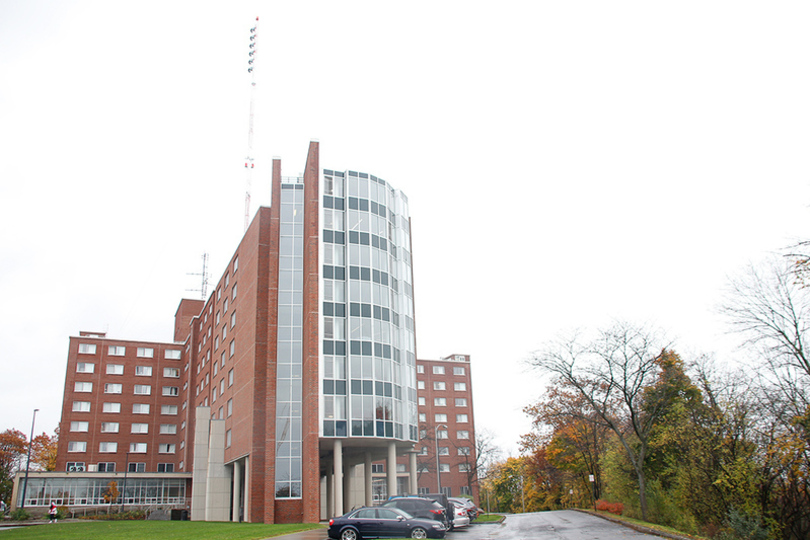SU quarantine plan creates barriers for low-income students

Daily Orange File Photo
Editor’s Note: Students with emergency financial aid needs related to COVID-19 can apply for emergency financial aid through the CARES Act here. You can find information about eligibility for CARES Act funding and alternative sources of financial support from SU here.
Despite new restrictions imposed by New York state on incoming travel, Syracuse University pushes for an in-person fall semester. A mandatory quarantine for students potentially exposed to the coronavirus is necessary to protect public health, however proposed “accommodations” by SU to the New York state travel advisory embody a large part of the SU experience: money.
In an email sent to the campus community on July 20, Vice Chancellor Mike Haynie and Amanda Nicholson, interim deputy senior vice president of enrollment and the student experience, shared terrifying news: only first-year and incoming transfer students would be able to self-quarantine in their assigned university residence hall. Returning students who plan to live in campus housing, including South Campus apartments, must spend their 14-day quarantine off campus, at their own expense. A day after this original email, Nicholson informed first-year and incoming transfer students that SU would charge $1,000 for the 14-day quarantine in their housing assignment, which includes three meals a day.
According to SU’s financial aid website, 76% of students received some form of financial support during the 2018-19 academic year, totaling over $395 million. The website states that $282 million, almost two-thirds of the total financial support offered in 2018-19, was awarded to students in the form of grants and scholarships.
Simply put, the “accommodations” SU are proposing are barriers for low-income students to participate in residential learning. With the total cost of attendance for a first-year student averaging $72,282, the university now expects students to potentially fork over additional funds for an in-person experience. Even with the “accommodations,” potential costs could be well over a thousand dollars, taking into account housing, food, shipping or delivery services and last-minute travel expenses.
Many students already changed their travel plans once this summer, when SU announced the fall semester would start a week early. Students shared online that they have yet to buy flight tickets due to the potential for more changes to SU’s move-in dates, or even worse, an announcement from Gov. Andrew Cuomo halting in-person instruction for the fall semester entirely. While SU has announced that students may begin their semester online during quarantine — potentially removing booking and rebooking fees for students who cannot get to Syracuse 14 days before classes begin — the cost of housing and associated fees still remains a burden for many.
When you consider the large number of students who rely on financial aid to attend SU, these fees are negligent. At best, they are out of touch with the financial reality for thousands of students. Approximately 20 million Americans are currently out of work due to the pandemic. Millions of others who have returned to work may still have outstanding debts related to their unemployment due to COVID-19. This week, the federal government’s weekly $600 unemployment cash bonuses will expire, potentially worsening the economic situation for millions of Americans.
SU’s message to low-income students is chilling: either fork over thousands of dollars for quarantine, or spend the semester remotely. This move prioritizes wealthy students and further stratifies campus inequality.
Low-income students are more likely to face barriers in completing a semester online. These students could be facing homelessness or housing instability, limited access to technology or the internet or a full-time job on top of courses. They will face all of these challenges without the in-person resources many rely on while living in Syracuse. Students facing a tough home life will also struggle if they cannot find the money to pay for quarantining in New York state, as they will have to balance school in a potentially toxic or abusive household.
SU should revoke the $1,000 fee for first-year and incoming transfer students who wish to quarantine in their residence hall. Just as SU waives fees for students who have the majority of their cost of attendance covered by financial aid, the same should be done for lodging students off campus. If you meet these requirements, SU should pay in-full for your off-campus quarantine housing. By taking on the financial burden of quarantine, SU will take one step in committing to improving the experience of marginalized students.
If SU cannot commit to prioritizing an in-person experience for all students, not just wealthy students, they should reconsider an in-person fall semester.
Taylor Krzeminski
M.A. Candidate, Public Diplomacy and Global Communications, ‘21
B.A. International Relations, Citizenship and Civic Engagement, ‘20




